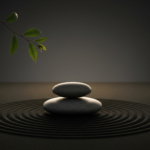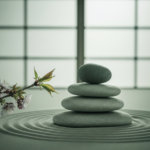You notice them wherever they go. The new titans of industry dressed like college kids on their way to class. Recently, I saw a picture of Jack Dorsey, the founder of Twitter, in a plain cotton T-shirt and nerdy trousers. With his overgrown beard completing the look, he resembled a man emerging from months deep in the jungle after a survivalist contest. Then there is Mark Zuckerberg, perpetually clad in his drab gray hoodies; Steve Jobs, who made the black turtleneck a uniform of genius; and Elon Musk, often seen in a wrinkled shirt that looks like it missed the attention of an iron. The paragons of modern wealth and power have adopted the aesthetics of austerity as a badge of seriousness. Their wardrobes, deliberately unremarkable, perform an illusion of efficiency, a visual shorthand meant to imply that they are too consumed with reshaping civilization to waste thought on attire.
Beneath this studied simplicity, however, lies a profound inversion of status, what sociologists aptly describe as conspicuous non-consumption. At a certain altitude of wealth, the need to signal prosperity through visible abundance evaporates. The mere fact of access, influence, and presence becomes a proclamation of rank. To dress like the poor, paradoxically, is to assert a subtler kind of power. It conveys that one’s affluence is so secure that it no longer requires advertisement. Only those whose fortunes are beyond question can afford the luxury of appearing indifferent to them.
Yet this aesthetic minimalism is often performative and not based on principle. The billionaires who clothe themselves plainly rarely live plainly. Dorsey may favor inexpensive cotton, but he resides in multimillion-dollar estates guarded by layers of technology and security and travels by private jet. Their restraint is not deprivation but choreography, a minimalist theater staged against a backdrop of unimaginable abundance. This curated simplicity has become its own form of branding. It projects authenticity and intellectual rebellion, signaling a break from the sterile formalism of traditional corporate culture. But beneath the surface lies a refined elitism disguised as humility.
After all, only the truly powerful can appear disheveled and still be taken seriously. If an ordinary professional were to appear at a meeting dressed like Mark Zuckerberg, he would risk being dismissed as unserious or unkempt. But when a billionaire does the same, society reinterprets the gesture as brilliance, eccentricity, or creative genius. The very behaviors that would be deemed lazy or inappropriate in others are reimagined, in the ultra-wealthy, as expressions of autonomy and visionary focus. It is a psychological performance, an intentional austerity that communicates discipline, clarity of purpose, and freedom from material concern, even while existing within extreme privilege.
In a world that once idolized opulence, a fascinating reversal has taken hold. The new elite no longer flaunt their status through gold watches or fleets of luxury cars. They assert distinction through restraint, through what they decline to consume. Thus emerges the paradox of conspicuous non-consumption, the modern language of quiet supremacy. More than a century ago, Thorstein Veblen, in The Theory of the Leisure Class, described the rich as asserting power through conspicuous consumption; the deliberate exhibition of excess. But the moral climate of our time has shifted. In an age burdened by ecological guilt, inequality, and moral fatigue, the performance of virtue has supplanted the performance of luxury. Prestige now resides in abstinence, in appearing too enlightened for vulgar indulgence.
The contemporary aristocrat of taste sips fair-trade coffee, dresses in minimalist linen, and escapes to remote corners of the world for meditative vacations. They profess the gospel of “less is more,” though their simplicity is rarely synonymous with sacrifice. It is a cultivated minimalism, one that demands both wealth and cultural capital to sustain. Simplicity, for them, is not a retreat from privilege but its most exquisite expression. This new moral economy prizes authenticity above affluence, and sustainability above sparkle. True prestige now lies in the appearance of indifference to status itself. To consume conspicuously is now gauche; to renounce them ostentatiously has become refined. The eco-conscious magnate who trades a private jet for a Tesla, or the influencer who makes a ritual of decluttering, all participate in the same genteel theater of virtue.
There is something admirable in the impulse, a yearning to reconcile prosperity with conscience, to tread lightly upon a damaged planet. Yet it is not without irony. The freedom to reject consumption is itself the privilege of those whose needs are already met. To romanticize frugality while others endure it unwillingly borders on aesthetic hypocrisy. In truth, conspicuous non-consumption has evolved into the moral branding of our age, a secular ritual of virtue dressed in the rhetoric of ethics and sustainability. We no longer display our wealth but our awareness; not our possessions but our principles. The designer handbag has yielded to the reusable tote, the sports car to the solar panel. But both remain emblems of hierarchy, markers of belonging in a culture where morality has become a style statement.
The currency of prestige may evolve, but humanity’s hunger for distinction remains constant. Yesterday’s elites flaunted wealth; today’s flaunt wisdom. Both seek validation, and both project superiority, one adorned in gold, the other veiled in humility. True equality of taste will arrive not when restraint becomes fashionable, but when dignity no longer demands performance, when neither abundance nor abstinence must serve as a testament to worth. Until then, the aristocracy of less will continue to reign, impeccably plain, serenely superior, and perfectly assured in its cultivated simplicity.
Osmund Agbo is a pulmonary physician.





















![Stopping medication requires as much skill as starting it [PODCAST]](https://kevinmd.com/wp-content/uploads/The-Podcast-by-KevinMD-WideScreen-3000-px-4-190x100.jpg)
![Weaponizing food allergies in entertainment endangers lives [PODCAST]](https://kevinmd.com/wp-content/uploads/The-Podcast-by-KevinMD-WideScreen-3000-px-3-190x100.jpg)


![AI censorship threatens the lifeline of caregiver support [PODCAST]](https://kevinmd.com/wp-content/uploads/Design-2-190x100.jpg)
